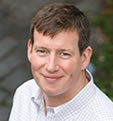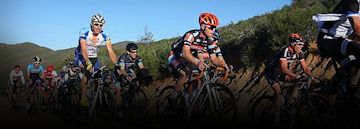"We are absolutely, unequivocally expanding, broadening what we do in moving to the enthusiast," said Derek Bouchard-Hall, CEO of American cycling's governing body. "As an organization we have to change."
"We really see it as absolutely essential for us to broaden our relevance, to broaden our game outside traditional racing," said Bouchard-Hall. "We are all in to make that happen."
A redesigned logo and a rewritten mission statement will help to reinforce the change happening.
"We are making it very explicit," he said. "We are a new organization."
He acknowledged that such change, however necessary, is challenging: "It is very hard for USA Cycling as an organization".
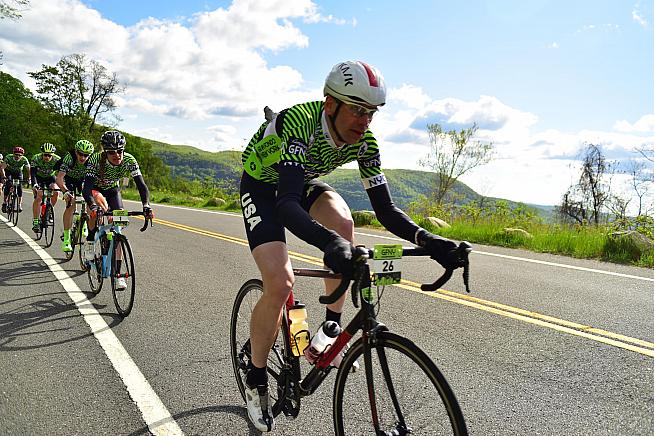
Rule changes shepherded through by Bouchard-Hall meant that GFNY, which like a big city marathon is a race at the front and participatory further back, ran under the USAC sanctioning umbrella in 2016 having been ineligible for the past few years.
He is a fan. "We need tons of these Ulis running tons of these events," he said, referring to GFNY co-founder Uli Fluhme.
If forced to identify an ex-cycling pro from a line-up most people would be able to pick out Bouchard-Hall.
At 45 he is close to 14 years removed from his days in the peloton and Olympic competition, but the body fat has not crept up too much. He finished GFNY in 64th in just under five hours, half an hour down on the winner. On Twitter, he acknowledged the 100-mile course wasn't an easy day in the saddle.
"I just finished @GFNY NYC. Boy that was fun! But man that was hard. Starting on GW bridge was something I'll never forget. A must do."

"The sport is changing. There are new formats away from road racing," he said. "From a pure strategic perspective the market is shifting and we must shift with it."
In interviews Bouchard-hall has discussed how the USAC organization is pulled in many directions by its mandate covering everything from multiple Olympic disciplines to local crits. He was also open that USAC had a lot of work to do rebuilding broken relationships with certain sectors of the cycling world.
In that context it might seem counterintuitive for the organization to expand into the non-racing world. He believes the opposite - strongly.
"It's the strategic and the right thing to do and will generate revenue."
"We need to grow membership," he said. "If we need more revenue we need more members ...it's all related."
"I actually thought I would have to fight for it when I arrived," but he found the Board was in complete agreement. "The easiest thing ever."
Until he succeeded Steve Johnson in the USAC job, he was living in Great Britain and points to the success of British Cycling, which has two or three times as many non-racing members as racers.
"We could go from our 70,000 racers to 200,000 members or more at the same ratio," said Bouchard-Hall.
Until Ride Membership was launched at the end of last year, USAC has been 100% racers.
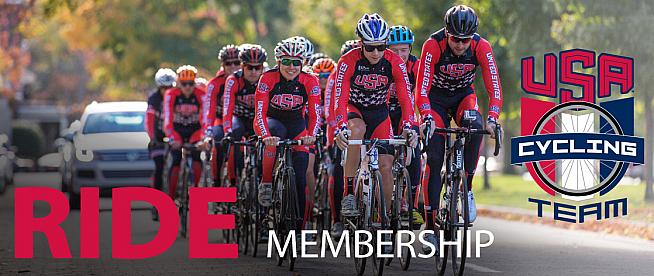
Bouchard-Hall has been open that the decision to leave online cycling retailer Wiggle and life in London for the non-profit world of cycling governance was a tough one.
He does not seem to regret it, however, and is positive despite the problems that USAC needs to address.
"I am because while there are a lot of significant challenges - the contraction of traditional road racing in particular — participation in cycling remains very robust," he said. "It remains a great sport"
He pointed to the rise of gran fondos and even to the explosion of platforms such as Strava and Zwift. "The universe is adapting to changing formats and tastes," he said. "There's a robust universe of people participating in the sport. I am upbeat about that .... Our drop in road racing is offset by the growth of the sport elsewhere."
Bouchard-Hall himself took to road racing while at Princeton, where he earned his first degree (of three). Born in California, Bouchard-Hall grew up in Norton, Massachusetts and after Stanford for degree number two he turned pro with Team Shaklee in 1994 and took to the track as well.
Splitting his time between track and road, the latter with the Mercury Cycling Team after 1998, Bouchard-Hall's best year came in 2000 when he won US National Crit Championships and the US Team pursuit title, and rode the team pursuit for the US at the Sydney Olympics.
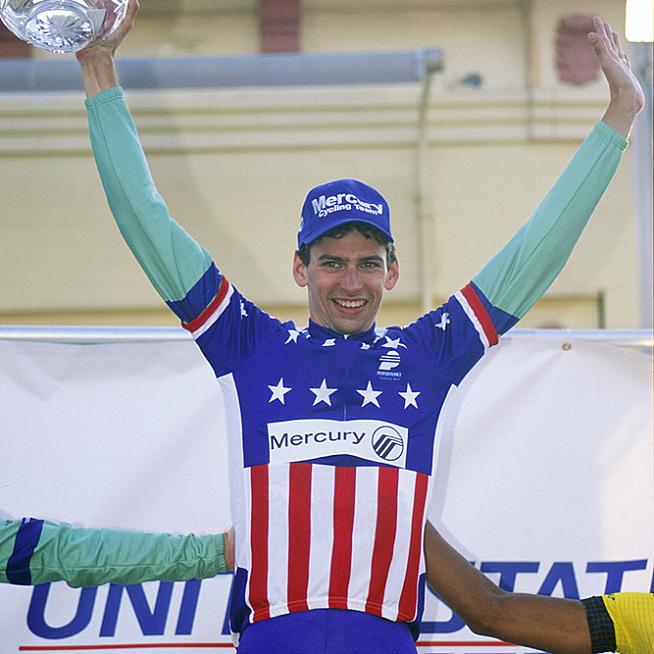
The success in 2000 followed an operation to correct a bloodflow problem in his left leg. When the issue returned in 2002 it was a significant factor in Bouchard-Hall's retirement at just 32. Degree three followed in the form of an Harvard MBA before a stint at McKinsey in Boston and London and later a return to the United Kingdom to join Wiggle.
He admitted that after hanging up the pro cleats he struggled a little, but never lost his love for cycling.
"I had to get far enough away from my former fitness," he said. That took around four years: "Then I was older and far away."
Now he thinks of fitness "on my own terms" rather than constantly comparing to the average watts he was producing as a pro.
"I never lost the enjoyment of riding and now I can go for Strava KOMs and do these races and I am just like all these mid-40s folks .... I have come to terms with my cycling life."
He understands the "pro for a day" appeal of events like GFNY while, for obvious reasons, it doesn't do anything for him. "For me it's the experience of blasting through a city center without having to stop for red lights or traffic. It's inherently fun," he said. "I still get a kick out of it."
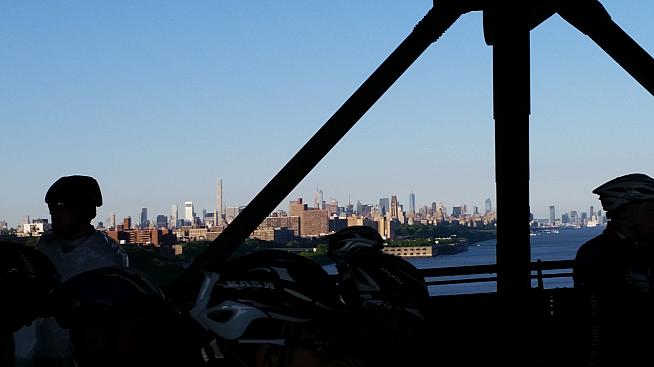
"I'm not out to enjoy the view," he said.
The same is clearly true at USA Cycling.
0 Comments

